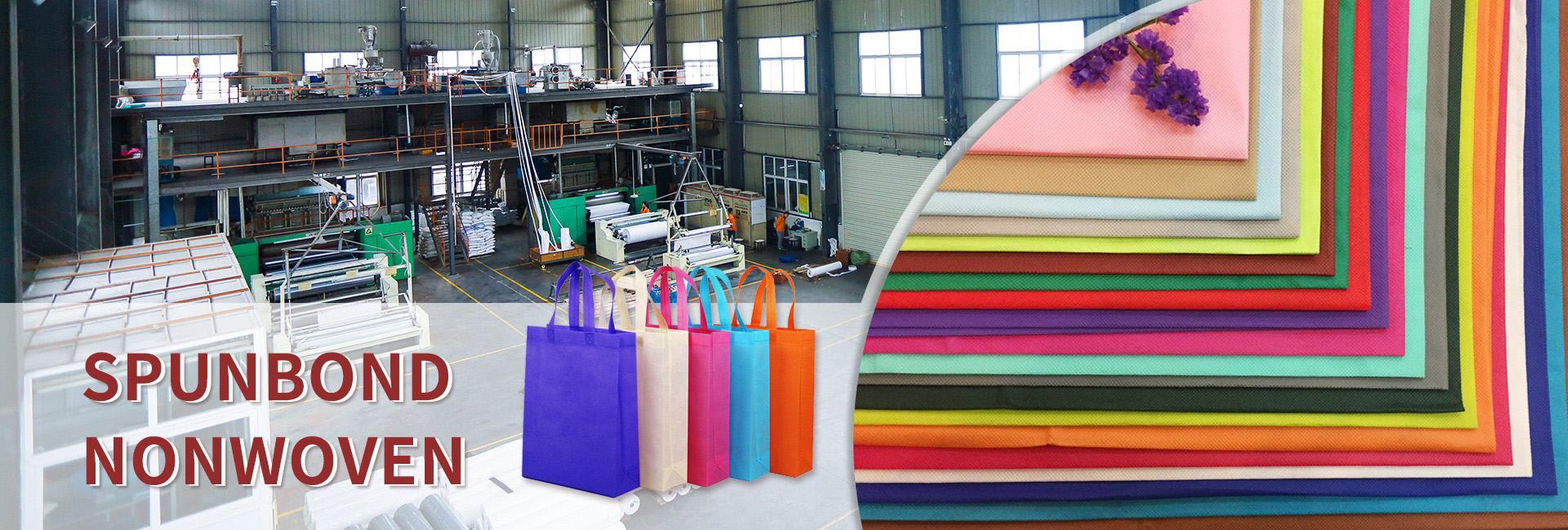Nonwoven shopping bags have become a popular choice for customers seeking a more sustainable lifestyle in the modern world where environmental consciousness is becoming more important. These bags, made of nonwoven polypropylene (PP) fabric, offer a viable alternative to single-use plastic bags. They are loved around the world because they are durable, reusable, and environmentally friendly.
Knowing nonwoven Shopping Bags: Nonwoven shopping bags are made using a special manufacturing process, instead of knitting or weaving fibers together. These bags are often made of polypropylene, a thermoplastic polymer known for its strength and resilience. This material is lightweight, resistant to moisture and tearing, and can be cleaned easily, so it can be used again and again.
Benefits of Nonwoven Shopping Bags
Nonwoven shopping bags offer several benefits compared to traditional plastic or paper bags. Here are some key advantages of using nonwoven shopping bags:
Reusability: Nonwoven shopping bags are designed to be reusable, which means less plastic bags are used. By using nonwoven bags on a regular basis, you can drastically reduce the amount of waste and contribute to a more sustainable world.
Durability: Nonwoven bags are known for being strong and long-lasting. They are made from synthetic fibers that are knitted together, making it a strong material that can handle heavy loads. Nonwoven bags can be reused without losing their structural integrity, unlike plastic bags, which often break or tear easily.
Longevity: Nonwoven bags last longer than most other bags. They can last for months, if not years, with proper care, making them a cost-effective way to carry things.
Easy to Clean: Nonwoven bags are relatively easy to clean and maintain. Most nonwoven bags can be hand washed or machine washed, allowing you to keep them clean and hygienic. This is particularly helpful when carrying dirty items or using groceries bags.
Customizability: : Nonwoven bags offer a high degree of customizability. They can be printed with logos, designs, or promotional messages, making them a great way for businesses to market themselves.Customized nonwoven bags can boost brand awareness and establish a distinctive identity for a company or organization.
Eco-friendly:Nonwoven bags are considered more environmentally friendly compared to plastic bags. They are usually made of recycled materials or can be recycled after they have been used. Making nonwoven bags often requires less energy and resources than making plastic bags.
Versatility: Nonwoven bags are versatile, and you can use them for many things, not just shopping. Their spacious design and durability make them suitable for multiple uses.
Reduced Plastic Waste: By using nonwoven shopping bags instead of single-use plastic bags, you help reduce the amount of plastic that ends up in landfills or pollutes the environment. This helps protect wildlife, conserve resources, and combat pollution..
Promotion and Legislation
Governments around the globe are implementing plastic bag bans and levying taxes to discourage single-use plastics. This shift in policy has further accelerated the adoption of nonwoven shopping bags. As part of their corporate social responsibility efforts, retailers and brands are promoting reusable bags.
Nonwoven shopping bags have become emblematic of the modern consumer’s commitment to sustainability. People are not just choosing these bags to carry their purchases, they are also choosing them to be convenient and stylish.
The Rise of Nonwoven Shopping Bags: A Sustainable Choice for the Modern Consumer In the contemporary world where environmental consciousness is growing more and more, nonwoven shopping bags will undoubtedly continue to play a significant role in reducing our collective carbon footprint and preserving natural resources. Embracing such eco-friendly alternatives is a small step that collectively leads to significant positive impacts on our planet.
Understanding Nonwoven Shopping Bags
Nonwoven shopping bags are made using a special manufacturing process, instead of knitting or weaving fibers together. These bags are often made of polypropylene, a thermoplastic polymer known for its strength and resilience. This material is lightweight, resistant to moisture and tearing, and can be easily handled.
Post time: Jan-14-2024

